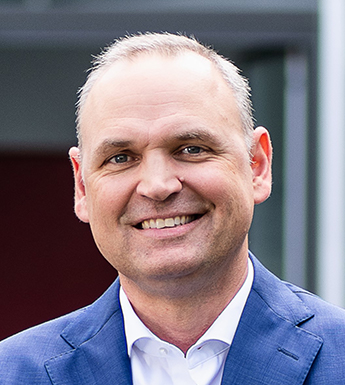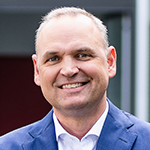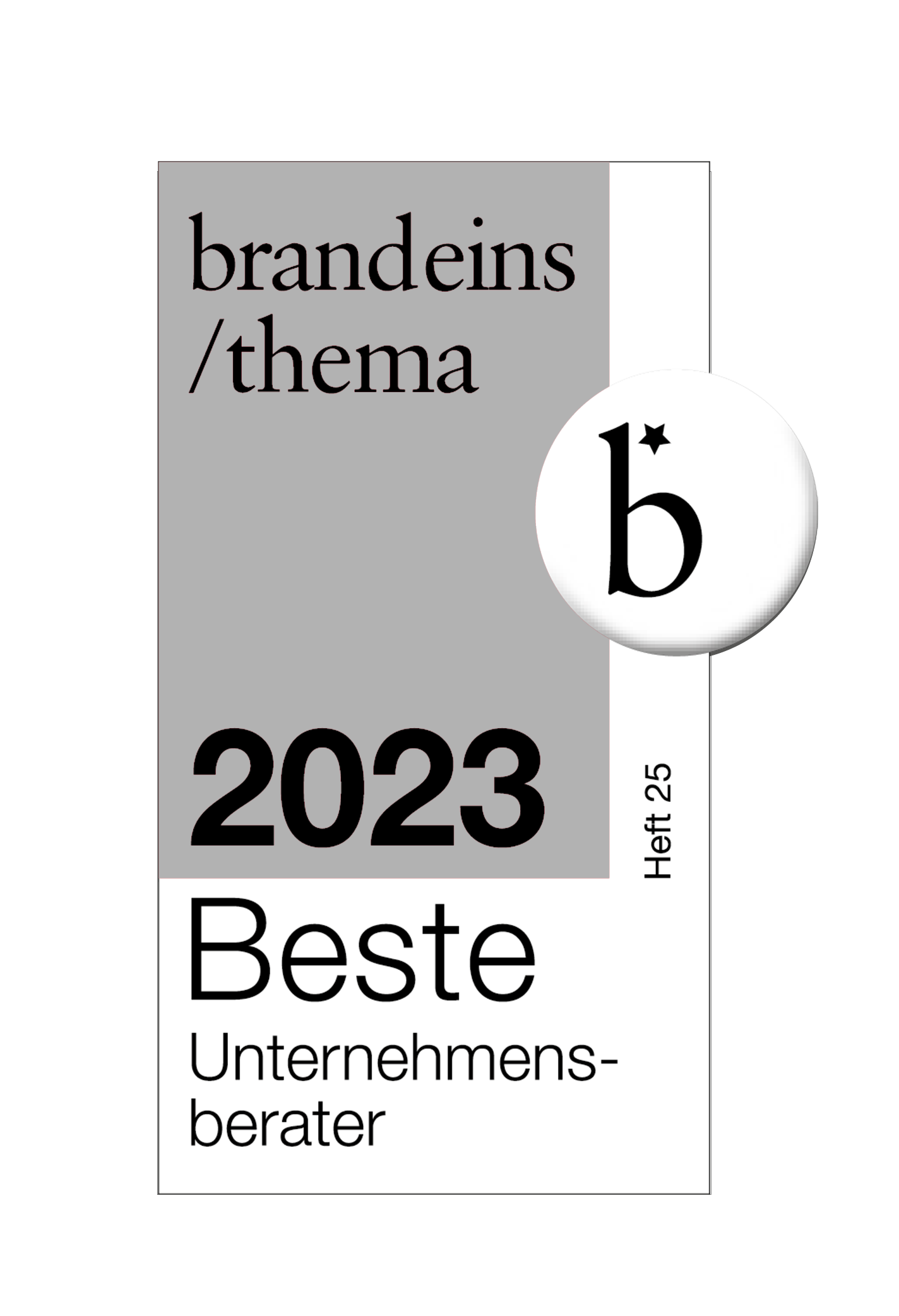Mr Praska, how does msg advisors shape the future of companies?
It is about creating a picture of the world of tomorrow together. This means understanding the changes in our customers' markets: we operationalise their strategies, but also contribute our expertise and impulses. From there we together to develop a target picture for the future role of the company. Will it be active and formative? Or is a reactive approach the better option? What needs to be done to fill these roles? Sometimes the customer's ideas are congruent with our assessments, sometimes we make adjustments together. In this way we successively arrive at a "vision" in the sense of a clear objective - achieving this is the guiding principle behind our work.
What does such a target picture look like in reality?
Ambitious, but not impossible. To use an example from a current project for a pharmaceutical company: the company's board expects to generate a considerable portion of the value added over the next few years from the software and digital services that accompany therapy. Many companies will do the same if they can shift their focus from a product-oriented world view more towards the customer.
This is a very revolutionary and provocative idea - after all, there are many limitations, for example in the context of compliance or company organisation. Nevertheless, this target picture is absolutely realistic from the decision-makers' point of view. Whether it is achieved depends, among other things, on the right evaluations and measures: what does it mean in concrete terms to introduce software as an additional therapeutic service in a highly regulated market? We clarify these critical success points together with the customer.
However, your customers develop very different target images and transformation paths, in addition to pharmaceuticals, for example, in industry or the IT/telecommunications sector. Which consulting approach can you use to do justice to this?
Through a strong combination of methodological, industry and professional know-how. Within the msg advisors team you will find many consultants who have worked in the field themselves and then switched to consulting. So they not only speak the language of the industry, but also know exactly what is going on within the industry, in departments and with processes.
For example, we employ biotechnologists who have already produced crystalline insulin. Or employees who previously held management positions in retail or logistics service providers. Such consultants know the usual production steps from the bottom up. This means that you approach a transformation project in a completely different way than consultants who take a "sterile" approach.
What is meant by this?
A "sterile" consultation focuses on the methodology of the approach - which is important, but not sufficient in and of itself. We combine methodological competence with deep industry and technical expertise, but we are also passionate, committed and willing to take calculated risks in customer projects from day one. What is more, the majority of our customers have appreciated the perspective we have provided over for the past ten or twenty years; and perhaps most of all, the fact that our people are right in the thick of things, that is, they can find loose ends and tie them together properly to create new approaches.
We want to understand and achieve a "personal win" for our customers, i.e. what really moves them. Thanks to this combination of competence, they place their trust in the people who will ultimately carry out the transformation and change of organization of the company in a completely different way.
By that you mean the movers & shakers, the transformation heroes in the company?
Right, but there are two different groups. Firstly, those who introduce and drive innovation and change with entrepreneurial spirit, passion and excellence, whether in incubators or in the organisation itself. These are the ones who are also familiar with the sensation of being severely slowed down. Wether through the mechanisms at work within the organisation, or in the market as a whole.
A successful "mover" knows the market structures in which they move and can deal with them. It is like the power of water: a few big waves can finally split a rock that has stood firm for decades and water continues to seep through for years to come. Transformation heroes penetrate the crucial interfaces of the organisation and, once there, they set the pace and initiate the change.
And the second group?
These are the people who are confronted with the change, with the "you have to do something different now". Be it due to digitalisation or due to market pressures, such as acquisitions. These people are suddenly faced with completely new tasks in addition to their daily business. Where it is not about the big revolution, but simply about generating benefits quickly: I have to integrate processes quickly. I have to integrate organisations, cultures and people. But how do I even do that? It is this the second group of transformation heroes that we are mainly concerned with.
However, some companies must master these changes faster and more profoundly than others. How do you deal with this in the consultation?
By working with our customers to design and build cross-industry ecosystems that drive their vision. This requires orchestrating two directions: on the one hand, the "conventiona" perspective, i.e. how can I manage the change in the existing market or business? On the other hand, how do you take employees, the organisation on this journey?
The exciting thing now is that every transformation path is different, with different perspectives: for example, if a company focuses on the R&D branch in its transformation, the intelligent combination of data sources and the corresponding evaluation are certainly a central success factor. However, if at the same time the output is to be increased by marketing products and services, the topic of 'customer experience' becomes more important...
This means several new challenges for which the necessary competence is not immediately available ...
That's right, you need partners. Especially those who were not necessarily seen as partners in the past, both inside and outside the industry. Take the pharmaceutical company's mission statement mentioned at the beginning, for example - you can only make such giant leaps if you are prepared to engage in new forms of collaboration. Definitely with consultants and service providers, and granted only for a few years until 2025, 2030, but of course you have to start doing it today.
"We operationalise strategies and contribute our expertise."
Interview partner
"We employ biotechnologists who have already produced crystalline insulin."
"Generating benefits quickly is the most common pressure of change."
"Partners become important - especially those who were not necessarily seen as partners in the past."
Learn more.

Thomas Praska
We are looking forward to hearing from you!
What we offer
-
We are defined by our in-depth knowledge of the structures, trends and future opportunities of our core industries!
Industry-expertise
-
From the boardroom to the shop floor, we understand the challenges of the key functions!
Functional expertise
-
We create growth and efficiency drivers using smart technologies, systems and data analytics!
Data and technology
-
We develop cross-industry digital ecosystems for the business models of the future!
Ecosystems of the future
-
We develop future scenarios and design implementation-oriented transformation roadmaps!
Thought leadership
- 1



